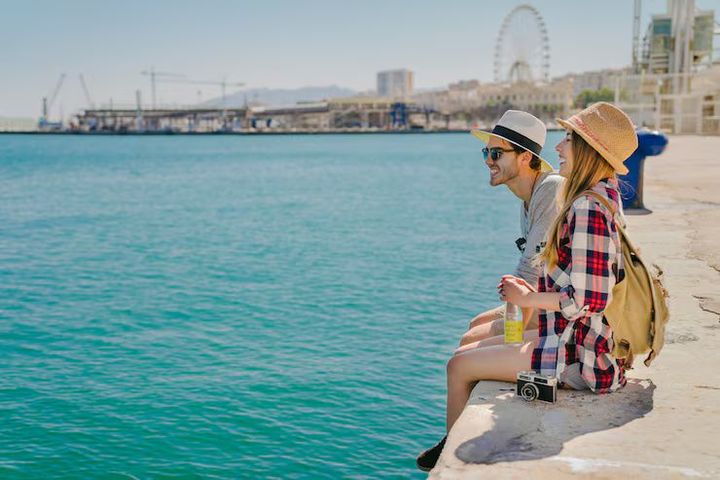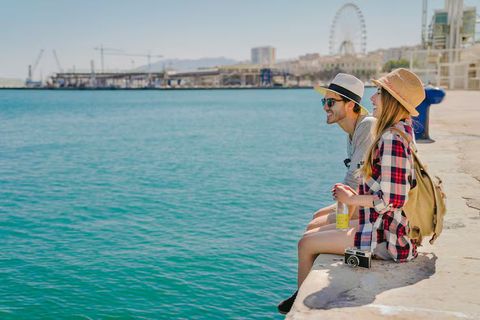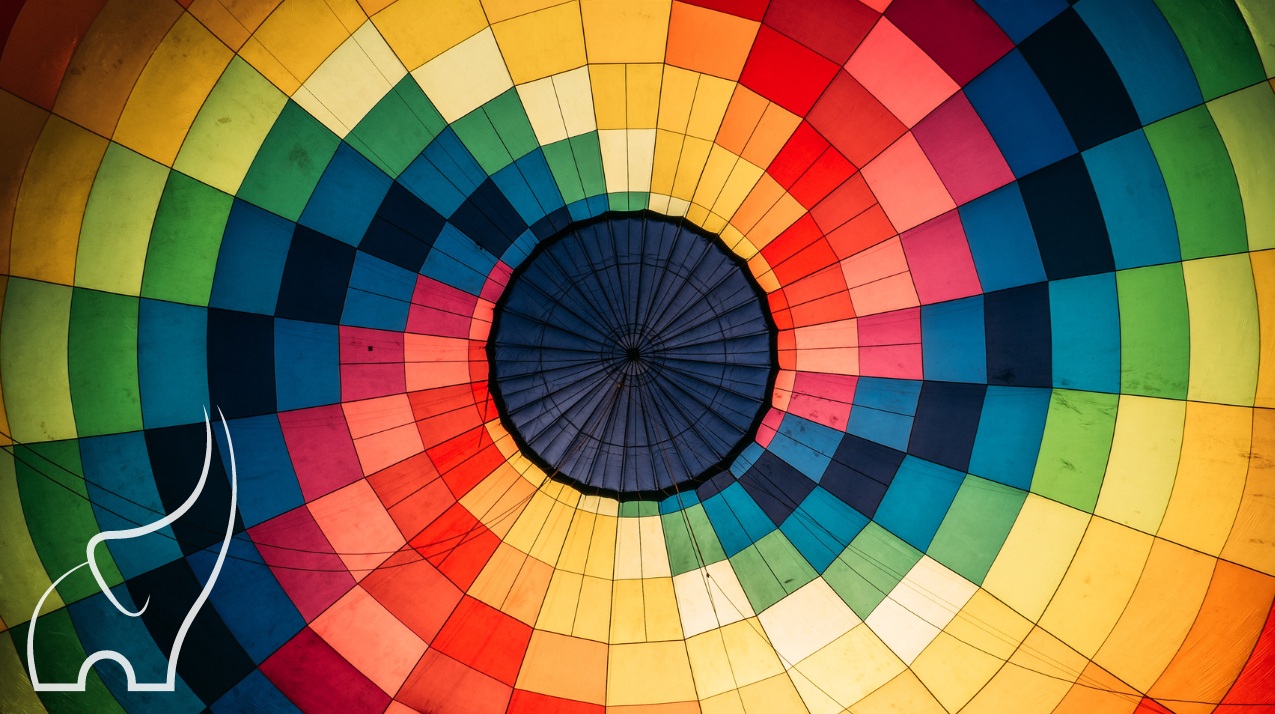
Dubai Travel Guide for Every Traveler: Learn, Discover, and Understand Key Highlights
Dubai is a major global travel destination located in the United Arab Emirates. It has developed rapidly over the past few decades, evolving from a trading port into a global center for tourism, international business, and cultural exchange. Travelers visit Dubai to experience its modern architecture, diverse food culture, desert landscapes, and global entertainment events. The city continues to expand with new attractions, urban projects, museums, environmental initiatives, and cultural spaces designed to welcome visitors from many backgrounds.
Dubai’s characteristics make it suitable for a wide range of travelers. Some explore its modern skyline and luxury travel experiences, while others look for historical heritage areas, desert cultural experiences, or family-friendly environments. The purpose of this guide is to help travelers understand Dubai in a clear and informative way, so they can plan according to their interests, travel style, and expectations.

Importance
Dubai matters today as one of the most visited cities in the world. It plays an important role in international tourism, global travel trends, and cultural exchange. The city attracts travelers from Asia, Europe, Africa, and the Middle East, acting as a transit hub through Dubai International Airport, one of the busiest airports globally.
Dubai’s development responds to key traveler needs such as:
-
Accessible international travel routes
-
Cultural diversity and global cuisine options
-
Safe and clean urban environments
-
Organized transportation and tourism infrastructure
-
A wide variety of activities suitable for different age groups
This destination also addresses challenges faced by some travelers, such as navigating unfamiliar cultural environments or planning activities in a fast-growing city. Dubai provides structured visitor information, multilingual signage, and regulated tourism policies to help travelers feel comfortable and informed.
Recent Updates
Over the past year, Dubai has introduced several new developments and travel-related updates:
Expo City Dubai Expansion (2023–2024):
After Expo 2020 closed in 2022, the site was transformed into a sustainable district known as Expo City Dubai. It continues to host exhibitions, educational centers, and cultural programs.
New Public Transportation Enhancements (2023):
Dubai expanded its metro and bus connectivity to support easier movement between major districts, including Business Bay, Dubai Marina, and the Historic Al Fahidi area.
Cultural Festivals and Global Events:
Dubai hosts regular international art, film, food, and technology festivals. For example, Dubai Art Season and Dubai Food Festival continue to attract global audiences.
Sustainability Initiatives:
Recent environmental programs introduced green zones, desert conservation, and initiatives for reducing energy use in public buildings. These aim to make tourism more environmentally conscious.
Laws or Policies
Travelers should be aware of certain rules and guidelines when visiting Dubai. These ensure safety, respect for cultural traditions, and organized tourism management.
Entry and Visa Regulations:
Visa requirements vary based on nationality. Many travelers receive a visa on arrival, while others may need to apply before travel. It is recommended to check official UAE immigration guidelines before planning travel.
Public Behavior and Cultural Respect:
Dubai welcomes diverse visitors, but maintaining respectful behavior in public spaces is expected. This includes dressing appropriately in cultural and religious sites, avoiding loud behavior in public, and showing consideration for local customs.
Photography and Privacy:
Travelers can photograph most public areas, but taking photos of individuals without permission is discouraged and may be restricted in some cases.
Alcohol and Tobacco Rules:
Licensed hotels and restaurants serve alcohol. However, consuming alcohol in public areas is not permitted. Tobacco use is allowed only in designated areas.
Transportation Regulations:
Traffic systems are structured and monitored. Seat belts are mandatory in cars, and jaywalking is discouraged, as pedestrian rules are strictly enforced.
Tools and Resources
Travelers can plan more efficiently using the following tools:
| Resource Type | Name | Purpose |
|---|---|---|
| Local Transport App | RTA Dubai App | Helps with metro, tram, bus, taxi planning |
| City Experience App | DubaiNow | Provides government and city service information |
| Navigation Tool | Google Maps / Waze | Helps locate destinations and plan walking or driving routes |
| Cultural Information | Visit Dubai (official tourism website) | Gives updates on attractions, events, and guidelines |
| Travel Planning | TripIt or Wanderlog | Helps organize travel itineraries |
These tools improve travel planning, location awareness, and overall experience, especially for travelers unfamiliar with the city’s layout.
Dubai at a Glance: Key Highlights
| Category | Notable Features |
|---|---|
| Cultural Sites | Al Fahidi Historical District, Dubai Museum, Jumeirah Mosque |
| Modern Landmarks | Burj Khalifa, Dubai Marina, Palm Jumeirah |
| Nature Experiences | Desert Safari Zones, Dubai Creek, Al Marmoom Desert Conservation Reserve |
| Food and Dining | Emirati cuisine, global restaurants, waterfront dining areas |
| Shopping & Markets | Global malls, traditional souks, local craft markets |
FAQs
1. What is the best time to visit Dubai?
The most comfortable months for travelers are November to March when temperatures are moderate. However, Dubai has year-round activities, including indoor attractions and air-conditioned public spaces.
2. Is Dubai suitable for family travel?
Yes. Dubai has many family-friendly places including parks, beaches, aquariums, educational museums, and theme entertainment zones. Public spaces are safe and well-maintained.
3. What languages are commonly used in Dubai?
Arabic is the official language, but English is widely spoken in hotels, transportation, restaurants, and markets.
4. How should travelers dress in Dubai?
In general, everyday modern clothing is acceptable. In cultural or religious areas, modest clothing that covers shoulders and knees is recommended.
5. Are there vegetarian or international food choices available?
Yes. Dubai’s food culture includes global cuisines. Travelers can find vegetarian, vegan, and international dining options easily across the city.
Conclusion
Dubai is a diverse and modern travel destination that welcomes visitors from all backgrounds. It provides a combination of cultural heritage, contemporary attractions, organized transport systems, accessible travel planning tools, and structured visitor information. Understanding local guidelines, recent developments, and cultural expectations helps travelers explore the city more comfortably. Whether the focus is cultural experience, urban sightseeing, nature-based exploration, or global dining, Dubai offers a variety of pathways to discover and understand its identity.
This guide presents a foundation for learning about Dubai. Travelers can explore further based on personal interests, whether discovering historical neighborhoods, attending seasonal festivals, or observing how the city continues to develop as a global cultural and travel hub.






